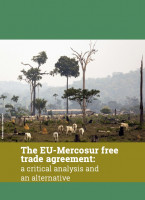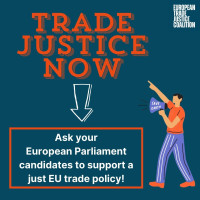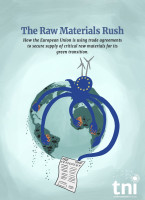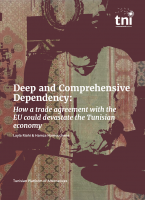EU Parliamentary Elections Trade Policy in the spotlight
Topics
Regions
Europeans go to the polls between 6-9 June 2024, to elect a new parliament. The composition of the European Parliament plays a crucial role in shaping policies that impact not only the European Union but also its global partners.
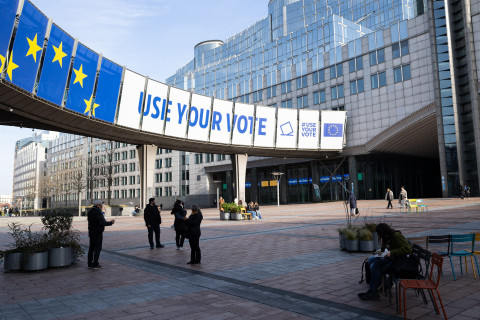
European Parliament/Flickr/CC BY 2.0 DEED
Voting Patterns on FTAs: European Left
The European Left has been the only group consistently voting against FTAs. Their main concerns remain the environmental and social impacts of trade policies for Europe but also for the global South. The group raised the alarm inside the Parliament about the contradictions of EU digital trade policy and the need to regulate Artificial Intelligence and the digital market. The group has called for a full reset of EU trade policy.
Voting Patterns on FTAs: The Greens
The Greens, being bigger in numbers, are a key player in many EU policies. Their biggest concerns have to do with environmental matters and they have led important battles such as the exit of the Energy Charter Treaty. They have had a higher rate of abstention and even support for certain trade agreements, such as the New Zealand FTA. Their approach of abstaining and maintaining a timid position raises concerns about their ability to counterbalance the upcoming European Parliament's trade decisions.
Voting Patterns on FTAs: The Social Democrats
The social democrats' voting behavior in the last legislature has brought few surprises. Their votes have raised questions only when it pertained to the energy charter treaty. This was largely influenced by the extensive campaign led by civil society groups and climate organizations, urging countries to withdraw from the environmentally detrimental agreement. Despite their opposition to the energy charter treaty, the social democrats have demonstrated a contrasting position, notably shifting from being against Mercosur to advocating in its favor. With the emergence of an extreme right president in Argentina, whose actions have led to a diplomatic crisis with the socialist government in Spain, will the S&D maintain its position in relation to Mercosur?
Voting Patterns on FTAs: The European People's Party (EPP)
The right, largest group in the Parliament, has been consistent in consenting to all the FTAs possible. The EPP is heavily influenced by large corporations and powerful sectors with armies of lobbyists circling Brussels. These entities benefit immensely from the lucrative opportunities Europe offers. They leverage their influence to navigate regulations and secure favorable conditions for their exports, ensuring a steady stream of profits. The right merely smoothes the path for these big corporations. This type of free trade ends up benefiting only the large operators and agro-exporters.
Voting Patterns on FTAs: The Extreme Right
The extreme right is currently represented in the Identity and Democracy (ID) and the European Conservatives and Reformists (ECR). Until recent years they have supported free trade agreements (it is well known that the extreme right and capitalism have alway been good friends). Yet, due to the recent farmers protests and seeing a potential in casting their votes, we have seen some national groups voting against FTAs, in particular from those countries where the farmers have a big say in shifting votes (France, the Netherlands, Spain). According to Politico Polls they might end up with 166 of the 720 seats in next month’s European election — giving them too much say in trade policy.
European Conservatives and Reformists (ECR)
Identity and Democracy (ID)
Future Trade Agreements and Concerns
As the European Commission’s Vice-President Dombrovskis has repeatedly stated, the focus for the next few years will be the EU's strategic autonomy to reduce vulnerability in energy and industrial development. This includes securing the supply of critical raw materials for the energy and digital transition as well as for the arms industry, and strengthening relations with like-minded allies through trade agreements, especially in Asia (but excluding China). The EU is leveraging the need for a green transition and digital industrialization to expedite trade agreements, displacing previous concerns about the sustainability of such agreements.
On the other hand, in order to secure access to the raw materials, the EU approved with absolute majority the Critical Raw Material Act. This act promotes the signing of more FTAs with specific chapters on critical raw materials as well as other trade related instruments such as Strategic Partnerships. Other similar unilateral instruments that have a lot to do with trade policy are expected in the next parliament: issues such as deforestation regulation, forced labor and the implementation of the Carbon Border Adjustment Mechanism (CBAM)- which is taking us back to carbon market solutions- is facing controversy, particularly in developing countries.


